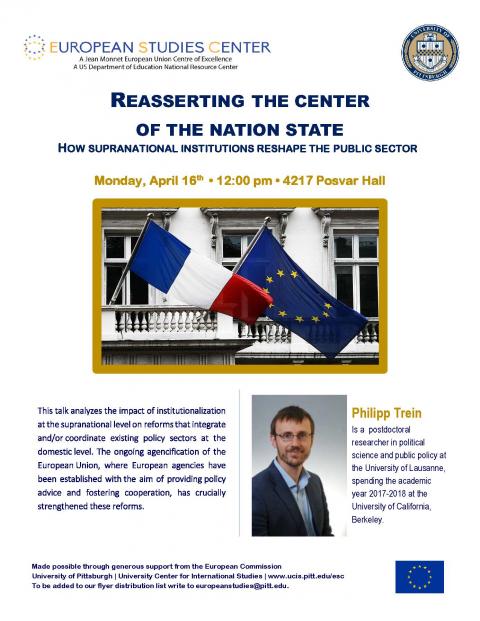
In this talk, I will analyze the impact of institutionalization at the supranational level on reforms that integrate and/or coordinate existing policy sectors at the domestic level. More specifically, I argue that the ongoing agencification of the European Union, where European agencies have been established with the aim of providing policy advice and fostering cooperation, has crucially strengthened these reforms. To examine this hypothesis, I present the results of multilevel analyses that estimate reform activity concerning policy integration and administrative coordination using an original dataset that compares four policy fields – environment, immigration, public health, and unemployment – in thirteen countries (eight EU members and five non-EU members) covering the period from 1985-2014. Overall, the results point to varying patterns of integration and coordination at the nation-state level and to the differential importance of agencification at supranational level.

